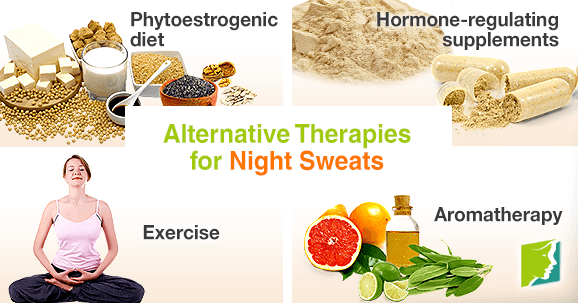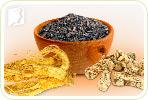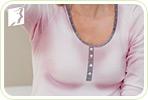Night sweats are an unpleasant, sleep-disrupting menopausal symptom. They are brought on by hormonal imbalances that cause the body to falsely detect increased body temperature, and then overreact by producing excess sweat. Many women assume that hormone replacement therapy (HRT) is the only way to control night sweats and other symptoms, but such treatment is drastic and potentially risky. Read on to learn about alternatives to hormone replacement.

Exercise
Exercising regularly is likely to reduce the severity of night sweats and promote a restful night of sleep. Yoga and tai chi are particularly relaxing exercises to try for improved sleep and hormonal balance. Also, studies have found night sweating to be more common among women who are overweight. Exercise is an important aspect of weight management. Alternating high-intensity bursts of cardio, such as sprinting, with moderate activity, such as brisk walking, is a great way to burn fat, lose weight, and reduce night sweats.
Phytoestrogenic Diet
Phytoestrogens provide plant-based estrogen, which can balance wavering estrogen levels in the body. This means that consuming phytoestrogens regularly could reduce the symptoms that result from hormonal imbalances, such as night sweats. Try incorporating them into your diet naturally by consuming nuts, seeds, and soy products (e.g., soymilk and tofu), which are all rich in phytoestrogens.
Hormone-regulating Supplements
There are many hormone-regulating supplements. Macafem, for example, is a 100% natural supplement that helps alleviate health problems related to hormonal imbalance in middle-aged women. It regulates hormones, improves sexual function, and increases energy, providing relief from various symptoms of menopause, including night sweats.
Aromatherapy
Though not exactly a cure for night sweating, essential oils can play a significant role in reducing episodes. Try mixing ten drops of grapefruit, ten drops of lime, and five drops of sage into 30 mL of a carrier oil. Add the concoction to your evening bath or dab it on the most sweat-prone parts of your body before going to bed. The sage will reduce the intensity of your sweating, and the fragrant fruit oils will counter body odor produced by night sweats.
Hormone replacement therapy - though capable of reducing the impact of some menopause symptoms - is an extreme form of treatment, and is currently being researched for its long-term health implications. For that reason, it is best considered as a last resort. This selection of alternative therapies is proof that there are other effective, simple, and affordable ways of treating your night sweats. With herbals remedies and lifestyle changes, you can control your symptoms and enjoy restful sleep.
Sources
- Ehrlich, S.D. (2011). Aromatherapy. University of Maryland Medical Center. Retrieved January 28, 2014, from http://umm.edu/health/medical/altmed/treatment/aromatherapy
- Ehrlich, S.D. (2011). Black Cohosh. University of Maryland Medical Center. Retrieved January 28, 2014, from http://umm.edu/health/medical/altmed/herb/black-cohosh
- North American Menopause Society. (2012). Treating hot flashes. Retrieved January 28, 2014, from http://www.menopause.org/docs/for-women/mnflashes.pdf
- Office on Dietary Supplements. (n.d.). Black cohosh - Health Professional fact sheet. Retrieved January 28, 2014, from http://ods.od.nih.gov/factsheets/BlackCohosh-HealthProfessional/



